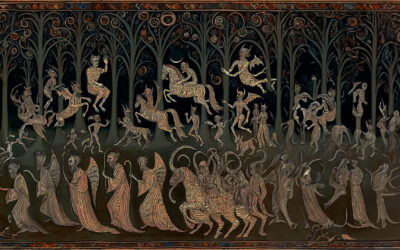Latin is an old language, a very old language. Today we might think of it as one language, frozen in time. However, even the Romans had “old words”, words no longer in popular use. Some authors took pleasure in using these, while others frowned upon this.
Julius Caesar is perhaps the most well-known proponent of avoiding rare words and using the most common words instead.
“tamquam scopulum sic fugias inauditum atque insolens verbum.”
Caes. De analog. 2.1Indeed, this quest for a simple and direct style has been lauded by Latin teachers for centuries. Caesar is, therefore, not unsurprisingly, one of the first Roman authors that many students read—even though the absence of rare words hardly makes Caesar an easy read for most Latin students.
Caesar was not alone in his view of rare words.
The great Roman magister dicendi Quintilian was of the mind that old words, and consequently rarely used in his time, do add a sense of dignity and freshness to language, but should be used judiciously and very sparingly.
However, some later Roman authors, such as Aulus Gellius and Apuleius, showed great interest in so-called archaic words, words from the oldest period of extant Latin literature, drawing from authors such as Ennius.
In today’s video, we’ll talk a little bit about three rare Latin words, old even for the Romans, and discuss the Romans’ view on such words—all in Latin, of course.
















